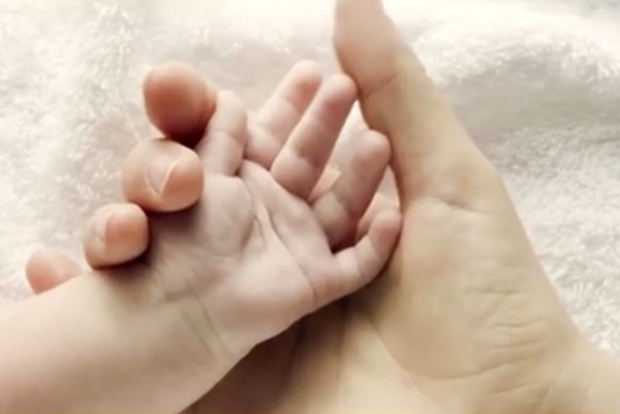If you think it’s tough being a Tory voter in 21st-century Britain, try being a ‘No’ voter in this week’s Irish referendum on gay marriage. Sure, Twitterati sneering at all things right-wing might have turned some Conservatives into Shy Tories, hiding their political leanings from pollsters. But in Ireland, to be a naysayer in relation to gay marriage is basically to make yourself a moral leper, unfit for polite society, ripe for exclusion from respectable circles. Irish opponents of gay marriage aren’t only encouraged to feel shy — they’re encouraged to feel shame.
On Friday, the Irish electorate will be asked to vote on the redefinition of marriage as a relationship involving ‘two persons without distinction as to their sex’. Heaven help anyone who says No to this flinging open of marriage to same-sex couples. For the extent to which Ireland’s political and media elites have lined up behind gay marriage ahead of the referendum is nothing short of breathtaking. I’ve racked my brains, and I can’t think of any other political issue in Europe in recent times on which the consensus has been so suffocating, and so hostile to dissent.
There’s a profound irony here: Ireland’s political class calls for a Yes vote to prove that Ireland has moved on from its intolerant religious past, and yet some of that old intolerance is being rehabilitated by the very people backing gay marriage. They shush dissent and demonise their opponents as effectively as any priest used to do, only in the name of Gays rather than God. Backing gay marriage has become, in Irish Independent columnist, Eilis O’Hanlon’s words, a way for influential people to ‘identify [themselves] as members of an enlightened elite’, ‘kindly metropolitan liberals versus nasty Catholic conservatives’. This referendum is now only ostensibly about gay marriage: more fundamentally it has become a means for a new, PC, post-traditionalist elite to distinguish itself from the allegedly hateful and gruff inhabitants of Ireland’s more rural, old-fashioned communities.
The president, Michael D Higgins, and the prime minister, Enda Kenny, back gay marriage. So does virtually every politician. Indeed, the main parties are enforcing the party whip on gay marriage, meaning any Senator or TD who votes against it is likely to be expelled from his or her party. According to the Irish Independent, even politicians who harbour ‘reservations about this major legislative change’ are not speaking out, ‘for fear of disobeying the party whip’. A professor of theology has written about a culture of ‘intimidation’ in political circles, saying it’s ‘incredible that the political parties have imposed the whip’ on this issue. Only one politician — one — has resigned his party’s whip over gay marriage. So intense is the whipped political consensus that politicians, desperate to demonstrate their gay-marriage correctness, are openly flouting some of the Irish parliament’s longstanding rules. Wearing political badges is forbidden in Ireland’s parliament, so in recent weeks politicians have been asked to remove the ‘YES’ badges many of them have taken to wearing. And they have refused. And no less a figure than Joan Burton, the deputy prime minister, has supported them. Clearly, parliamentary rules come a poor second to making a public spectacle of one’s devotion to gay marriage. Wearing a ‘YES’ badge has become a shortcut to the moral highground, a passport to chattering-class respectability, and politicians won’t be taking them off for anyone. Meanwhile, virtually the entire media are agitating for a Yes vote. Especially the Irish Times, mouthpiece of the smug inhabitants of Dublin 4, Ireland’s version of Islington, only more painfully PC. In this rarefied universe, supporting gay marriage is as natural as breathing, and as necessary too: fail to back gay marriage and you’re as good as dead to the Irish Times-reading set. The public sector also backs gay marriage. It’s apparently being strongarmed to do so. According to one dissenting politician — the only one — ‘agencies who receive state funding are being pressured [by officials] into supporting a Yes vote’. Silicon Valley is fully behind Yes: Twitter, Google and eBay have all come out for gay marriage. Twitter’s Irish boss says a Yes victory will enhance ‘Ireland’s international reputation’ — another way of saying that if you vote No, you are damaging your own country. Even the police are saying Yes: the Garda Representative Association caused a stir by calling on its members to support gay marriage, leading some to wonder if it’s right for coppers to stick their truncheons into politics. So, the armed wing, political wing and chattering wing of the Irish elite is behind Yes. And what’s more, they’re actively demonising the No side, treating them as pariahs whose backward ways of thinking could harm Ireland and her citizens. The Psychological Society of Ireland issued a dire warning about the arguments of the anti-gay marriage camp, claiming they could ‘impact detrimentally on people’. A writer for the Irish Times called for the establishment of a ‘homophobia watchdog’ to keep a check on the words of the No side. The end result of the sacralisation of Yes and demonisation of No is a strangled, unfree debate. This is especially the case on social media. There, in the words of O’Hanlon, those who express doubts about gay marriage can find themselves ‘driven offline’.This moralisation of the marriage debate is a dangerous game, for it means that, whatever the outcome on Friday, Ireland will likely feel more divided than ever — between a new class of allegedly decent people in Dublin and the old, the religious, The Other.







Comments